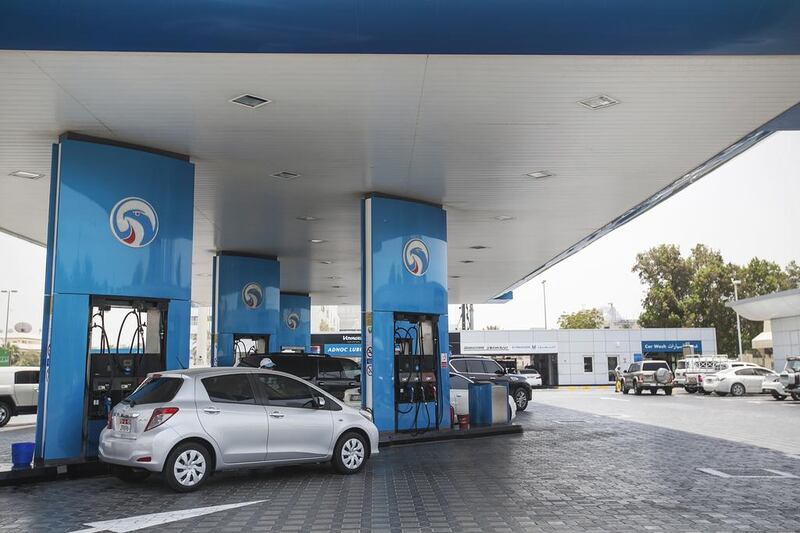DUBAI // Residents say a dip in fuel prices next month is of little relief to their pockets as costs of living continue to rise across the country.
The Ministry of Energy announced on Tuesday that fuel costs for cars will drop around 5 per cent starting on Saturday as prices fall for a fourth consecutive month.
Consumers will pay Dh1.86 a litre for Super 98, compared to last month’s figure of Dh1.96. Special 95 will decline to Dh1.75 from Dh1.85, and E Plus will cost Dh1.68, down from June’s Dh1.78. Diesel prices will drop to Dh1.84, a 3.16 per cent slide from last month.
Saeda Abdulhay, a private tutor, commutes between emirates daily, “I commute to different Emirates and areas to give French lessons and petrol prices has been included in my household’s budget. I pay around Dh1,200 for petrol and it’s a significant amount of money. It’s crazy but true.”
Mrs Abdulhay drives a Nissan Patrol and pays around Dh145 every time she visits the petrol station.
“My daughter uses the car when she goes out over the weekend. I ask her to put fuel from her weekly allowance,” she said.
The Algerian expatriate said petrol prices were much lower when she first moved to Dubai three years ago.
“Three years ago, I don’t remember that petrol prices were this expensive. Honestly, everything has become more expensive and that’s why I usually check the recent petrol prices,” she said.
Mrs Abdulhay said she could take shorter routes to save petrol but must then factor in the cost of Salik gates.
The Ministry of Energy began liberalizing fuel prices from August 2015, using benchmark prices that have not been publicly disclosed. Before the new system took effect, fuel prices were more varied – Super 98 cost Dh1.72 a litre while Diesel cost Dh2.90.
Nour Khalil, a Lebanese expat who owns beauty salon in Ras Al Khaimah also commutes between different emirates daily.
“I commute from Ras al Khaimah to Sharjah, Dubai, or Abu Dhabi on a daily basis. Usually I have clients living in other emirates and a group from the beauty salon needs to be taken to the client’s location. Also, I buy most of our equipment from different shops in Dubai.”
She said that in her ten years of running the business the last three years have been less profitable.
“Three years ago, this business used to cover the salon’s expenses and make more than Dh30,000 profit,” the mother-of-four said.
“You think that commute is the hardest part in my trip, but filling up my car with petrol at least three times a week and paying more than Dh400 is frustrating,” said Mrs Khalil, who drives a Nissan Altima.
“My husband and I are checking the fuel prices regularly now because it became a huge part of our monthly expenses and life is becoming more expensive in terms of electricity, school fees and rent” Mrs Khalil said.
Another business-owner in Dubai said he has also started to include petrol prices in his monthly budget.
Mohammed Fedaa commutes between Sharjah and his audio production company in Silicon Oasis and has regular meetings in Abu Dhabi.
“I fill up my car with petrol three times a week. It costs Dh110 each time,” Mr Fedaa – who drives a Jeep Wrangler – said.
“Saik and petrol are becoming a huge financial burden.”
nalramahi@thenational.ae






